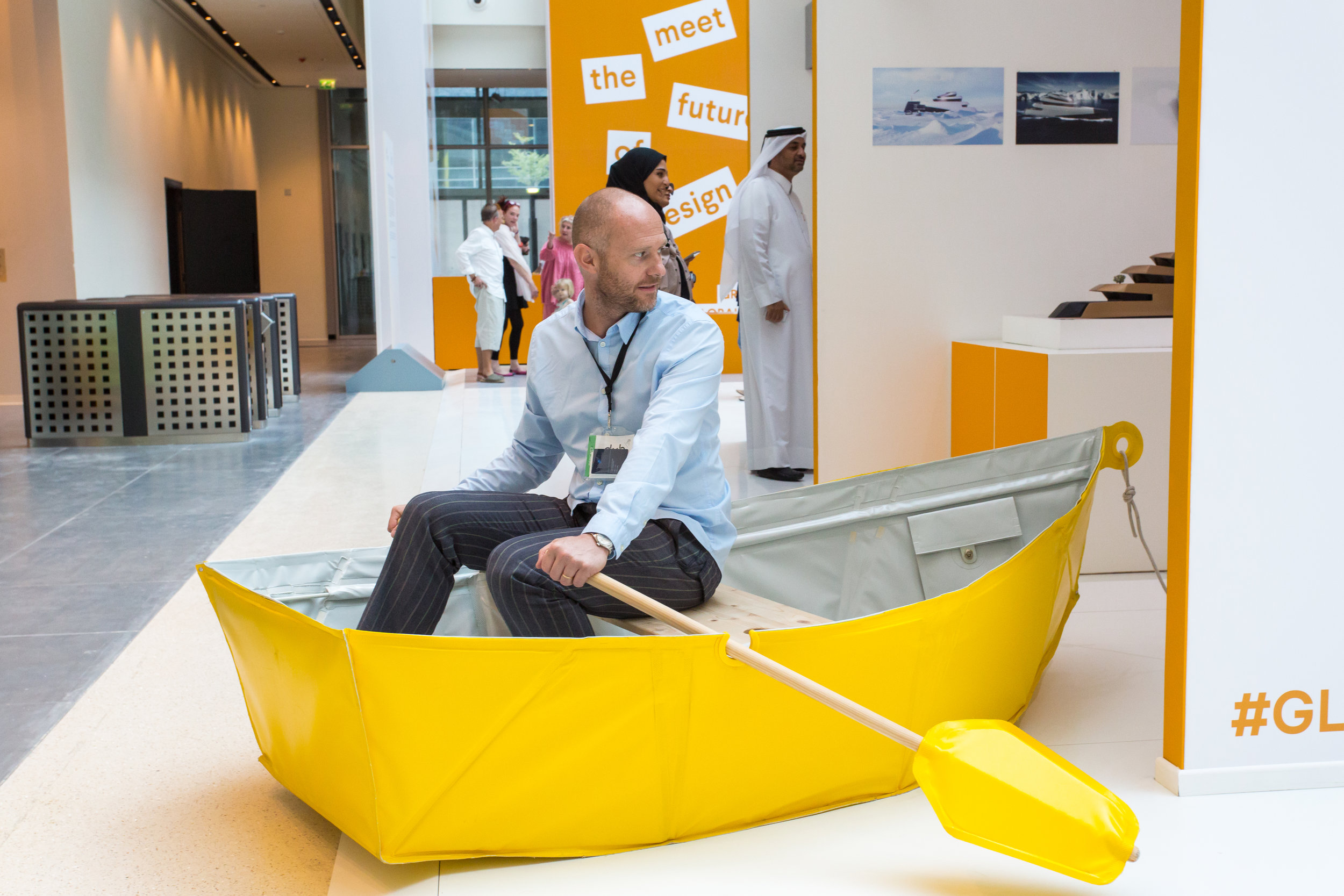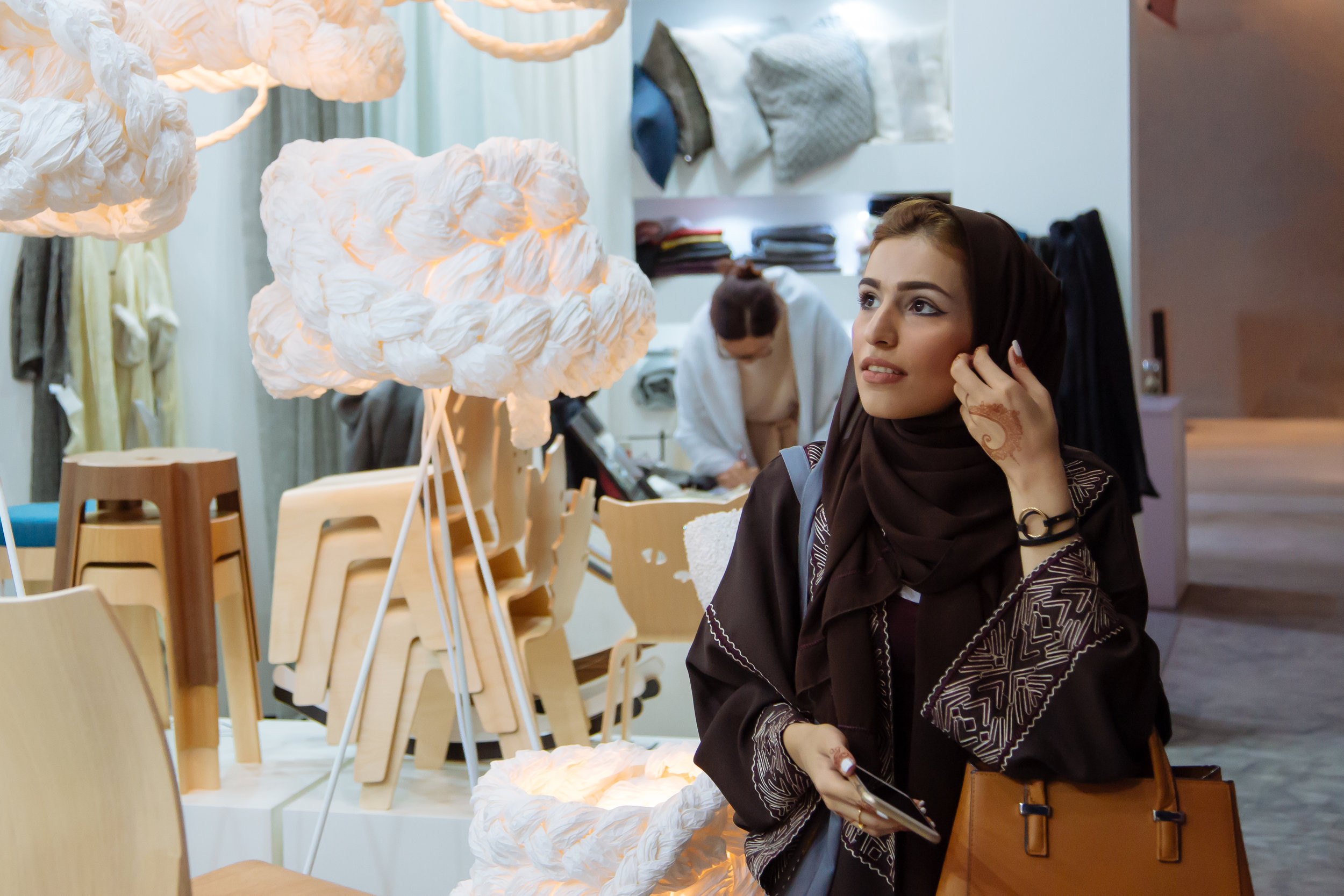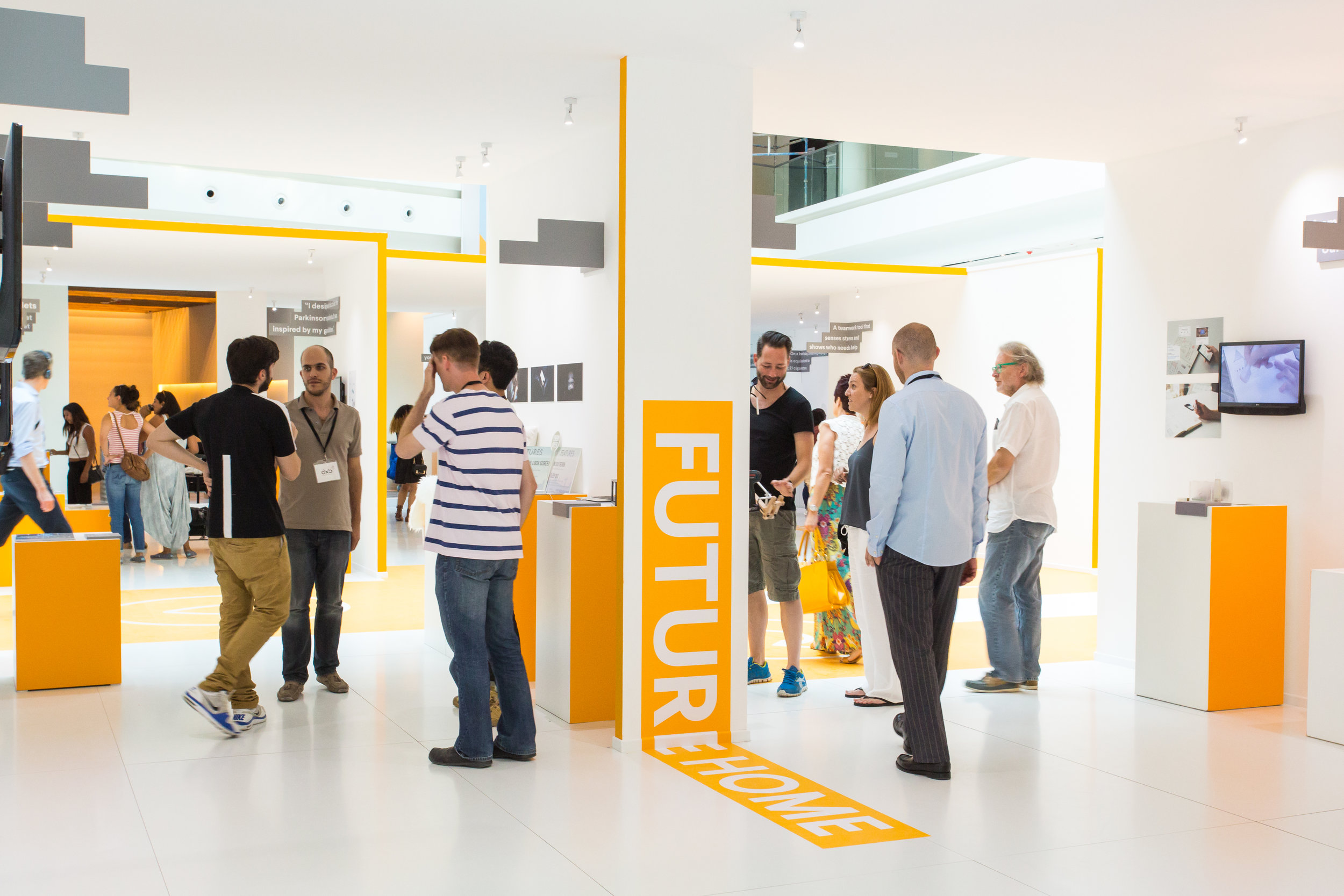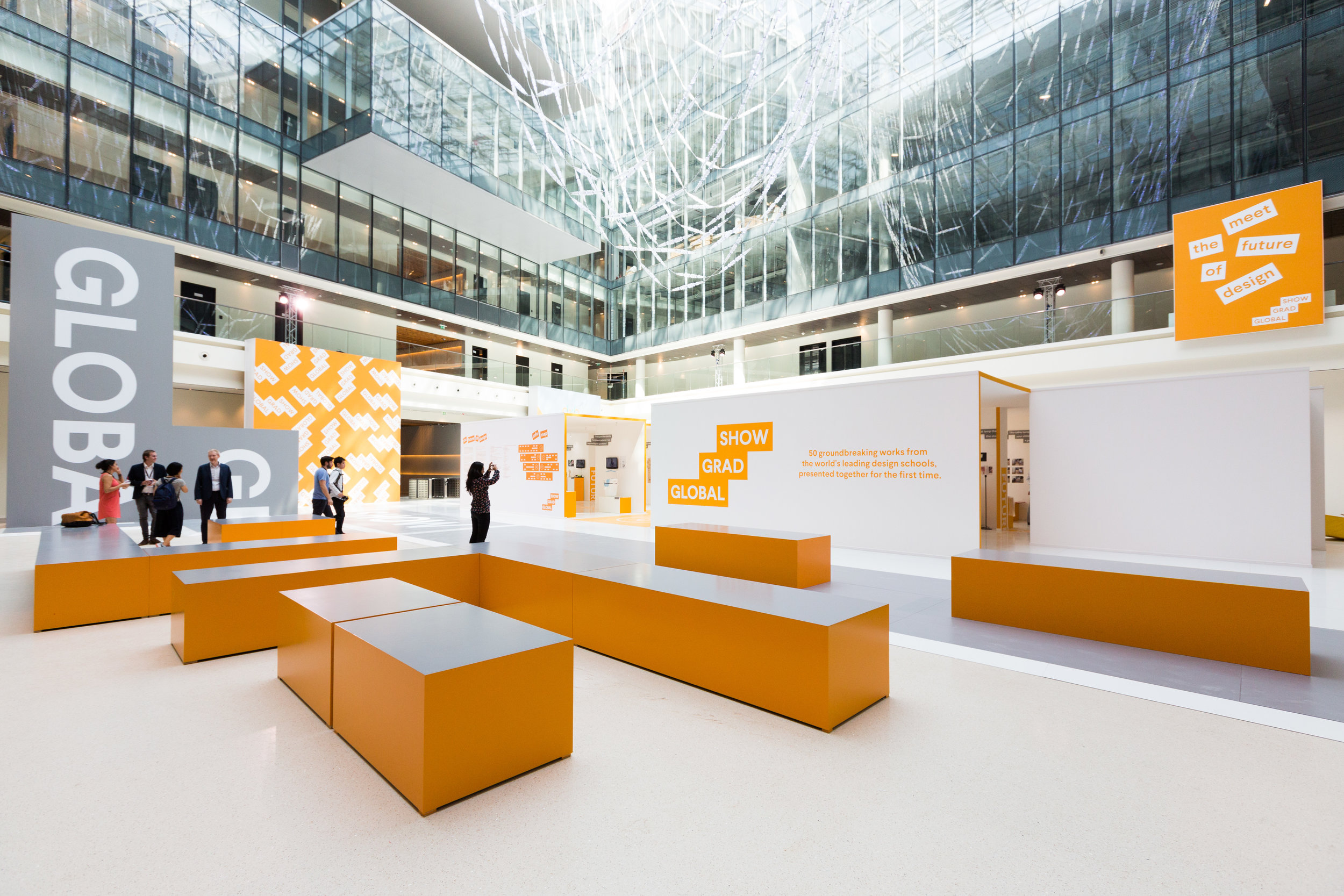How Can Participation in the Arts Empower UAE Youth?
As Expo 2020 advances upon the UAE, the country is enlisting the youth to communicate a significant share of the country’s vision and expo theme - Connecting Minds, Creating the Future.
Expectations are high with innovation, technology and creativity taking centre stage on the prestigious international platform. With this considerable responsibility weighing on young shoulders, how can access to the arts and the creative industries equip the youth with the appropriate skills and empower the young hosts to assume the mantle for the Emirates in 2020?
Over the last few years, Arts Education has grown in prominence in a number of major cultural events in the UAE, to the extent that an educational element has now become an integral component of their public programming. In the past, these events have predominately catered for University students. However, there is an increasing drive by various arts organisations in the UAE such as Art Dubai, Abu Dhabi Music and Arts Foundation, Dubai Design Week and Sharjah Art Foundation to reach out to and engage, young people and teachers from both public and private schools. Although not without its logistical challenges, this shift by the cultural sector, to deliver workshops, initiatives and guided tours for schools and young people, alongside their mainstream events, is contributing significantly to raising the profile of arts education in the region.
“Arts Education can nurture the potential of human capital.”
Participation in the arts can provide young people with an opportunity to explore and express their perspective, and through meaningful engagement with an artist or cultural event, discover the treasures of the world outside their school community.
International research reveals that creative partnerships enrich students’ appetite for arts and concurrently enhance their critical thinking skills and activate language development. (NACCCE, 1999) Equally, art organisations have observed that their practitioners acquire new perspectives and facilitation skills during the collaborative process and creative exchange. (Ibid)
“Everyone has the right freely to participate in the cultural life of the community, to enjoy the arts and to share in scientific advancement and its benefits.”
UNESCO’s Universal Declaration of Human Rights Article 27 states that everyone has the right to engage freely in the arts and benefit from the rewards of a cultural life. (UNESCO, 1948) The arts, in its widest forms and disciplines, can hold a mirror up to our lives enabling us to see who we were, who we are, and who we can become. It is widely acknowledged that the complex language of the arts can communicate individual and collective stories and when presented, with sensitivity and cultural awareness, can provide transformative learning experiences that cultivate self-confidence and expand people’s consciousness. (Creative Partnerships, 2009)
Providing access to the creative industries can also open up new pathways for young people, art professionals and teachers alike, resulting in the acquisition of diverse skills and real life experiences that they may not necessarily have access to or even considered as places of work in their future.
“Ibn Al Haytham is credited with explaining the nature of light and vision, through using a dark chamber he called ‘Albeit Almuzlim’, which has the Latin translation as the ‘camera obscura,’ the device that forms the basis of photography.””
From the 7th century onwards, the Islamic Golden Age was a time of innovation. It inspired a Renaissance across Europe and this creative period was pivotal in shaping current global society. The groundbreaking advancements in science, navigation, technology, architecture and design are still prevalent in the everyday. For example, the Islamic scientist Ibn Al Haytham, “is credited with explaining the nature of light and vision, through using a dark chamber he called ‘Albeit Almuzlim’, which has the Latin translation as the ‘camera obscura,’ the device that forms the basis of photography.”
“A workforce that is skilled in the “powers of communication, innovation and creativity” are a prerequisite of any company worldwide in the 21st century. ”
With the rapid evolution of the smartphone, everybody now has access to a camera to document, create and report on the everyday that surrounds him or her. Digital photography saturates all forms of social media, connecting people across the globe with the latest news, ideas, and creativity from the mundane to the inspirational.
In our technological age, there is an opportunity in the UAE for arts education providers to inspire a students’ world beyond the classroom, connecting young people back to the vibrant period of innovation and creativity that even relates to the current innovation-led agenda and Dubai Plan 2021.
How we see, how we explore, how we connect to our heritage and our immediate surroundings can be greatly enhanced with a strong foundation in art education. Working in unison, the arts coupled with the sciences, can equip young minds with the foresight and ability to visualise the world yet imagined. (British Council, 2014)
©Electra Events And Exhibitions Global Grad Show| www.dubaidesignweek.ae
The Global Grad Show at the inaugural Dubai Design Week in October 2015 was a recent example of the next generation of creative entrepreneurs and influencers considering the wider social and economic implications of how design can influence how we live, work and play from a socially conscious perspective. When arts and culture are integrated with science and technology, it can result in a more purpose driven agenda that leads to improving society. (Arts Council, 2014)
The arts can support the evolution of educational systems around the globe and can contribute to youth empowerment, and in the long term, contribute to diversifying a country’s economy. A workforce that is skilled in the “powers of communication, innovation and creativity” are a prerequisite of any company worldwide in the 21st century. (NACCCE, 1999) Simply expressed arts education can nurture the potential of human capital. (Robinson, 2011)
“Participating in the arts develops ‘right brain’ qualities such as empathy and inventiveness and it is these attributes, alongside the ability to be critically reflective and analytical, that are required to navigate a diversified economy from a human perspective. ”
The UAE’s creative landscape is unique. The country is home to over 200 nationalities,16 each with a distinct story and identity to be explored, and invisible talents to be unearthed. As the country's natural resources begin to wane, investing in arts education and creative partnerships is an integral component to safeguarding the country's future. Participating in the arts develops 'right brain' qualities such as empathy and inventiveness and it is these attributes, alongside the ability to be critically reflective and analytical, that are required to navigate a diversified economy from a human perspective. (Pink, 2006)
The next generation of UAE entrepreneurs and socially conscious artists are eager to accept the Expo2020 challenge and share the country's unique story of resilience and invention. Working together, we can empower the UAE youth to assume the responsibility with creativity and confidence.
References
Arts Council England, (2014) The Value of Arts and Culture to People and Society: An Evidence Review. London.
British Council, (2014) Why culture should be at the heart of future public policy. Culture Matters. British Council. Foreword by I. Bokova
Creative Partnerships, (2006) The Rhetorics of Creativity: A Review of the Literature. London.
NACCCE - National Advisory Committee on Creative and Cultural Education (1999) All Our Futures: Creativity, Culture and Education, London: Department for Education and Employment.
Pink, D. (2006) A Whole New Mind: Why Right-Brainers Will Rule the Future. Rep Upd Edition. Riverhead Books.
Robinson, K. (2011) Out of Our Minds: Learning to be Creative
Robinson, K. (2009) The Element: How Finding Your Passion Changes Everything, Viking Penguin, New York
Pictures
©Dubai Design Week Global Grad Show Exhibitors I www.dubaidesignweek.ae I Media
